The best phone in the world right now is the Samsung Galaxy S21 Ultra, but if that isn't for you we've got 14 other top picks that may suit you, including the best iPhones and a variety of other Android phones.
Our phone experts have spent years reviewing smartphones, and we've tested all the best on the market to put together this definitive list of the very best smartphones you can buy in 2021.
Buying a cell phone is a complicated decision, and you need options. That's why we've come up with a list of the best rather than just a single 'best phone' recommendation. We weigh the pros and cons of each model on our list based on performance, cameras, price point, and other metrics.
We're constantly updating our best cell phones list to make sure you're buying the absolute top phone for your needs. The Samsung Galaxy S21 Ultra is our latest number one pick, but also consider the iPhone 13, OnePlus 9 Pro iPhone 13 Pro or Galaxy Note 20 Ultra, which we've found powerful phones for different reasons beyond operating system of choice.
There are price considerations, too, and we've factored that in, with choices like the OnePlus 9 making our list for the value it provides. Some phones even debuted at a notably cheaper price than competitors, like the Google Pixel 6 and the Samsung Galaxy S20 FE, which are great picks for those who don't want to spend a lot to get a good phone.
Likewise, your particular cell phone plan may sway your preference; especially since certain carriers often provide especially good cell phone deals for certain handsets, whereas others don't. Almost all smartphone prices have crept up to – and above – $1,000 so you'll want to take your decision seriously before committing to a phone you'll likely use for years.
With the Google Pixel 6 and Google Pixel 6 Pro officially out, we've seen most of the upcoming new phones that will come out in 2021, so our list is pretty complete until new phones start launching in 2022, starting with the expected Samsung Galaxy S22. Apple also recently launched the iPhone 13 mini, and that may appear in this list once we've fully reviewed it.
Best phone 2021: which smartphone is for you?
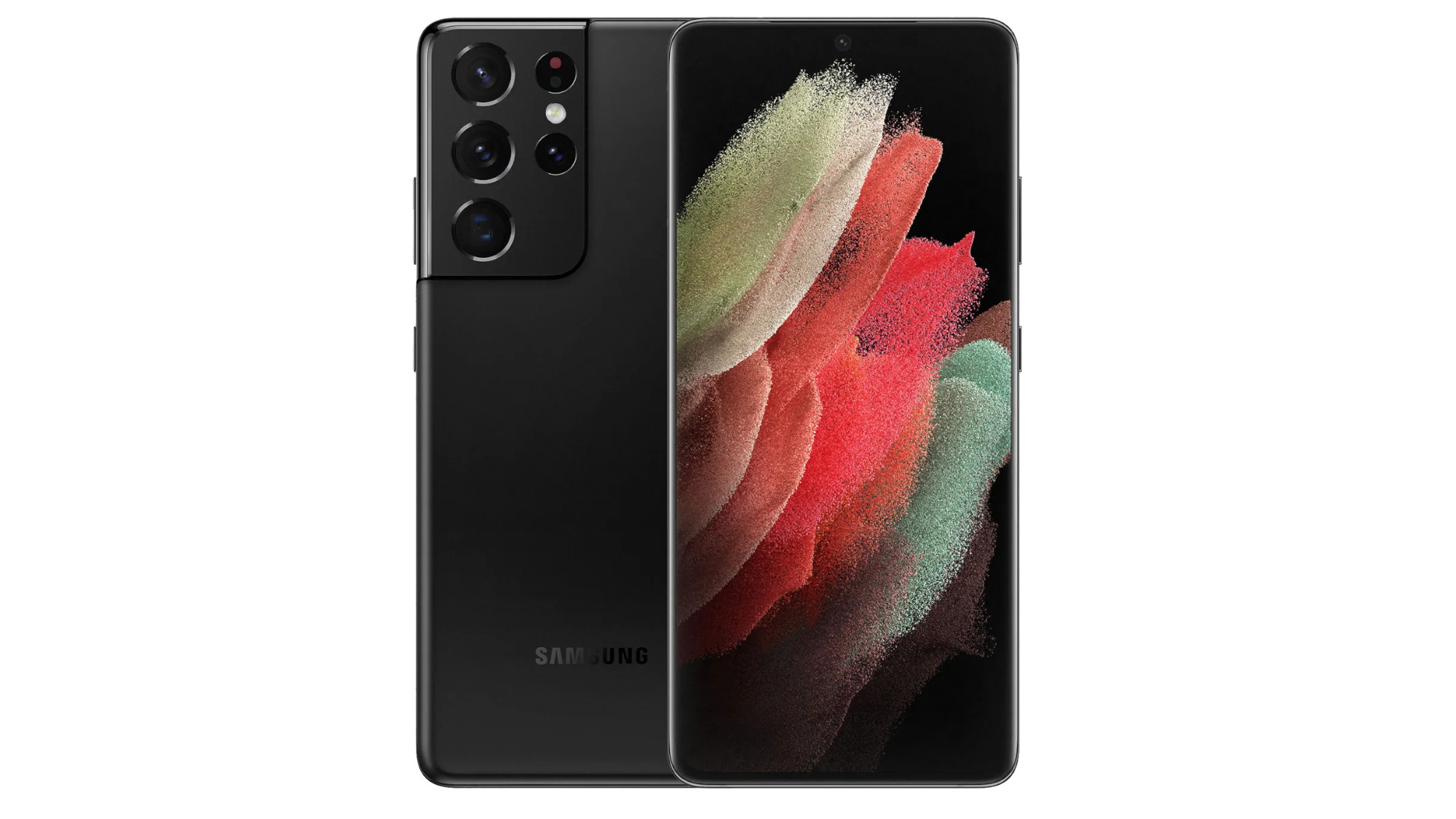
The Samsung Galaxy S21 Ultra is our best smartphone in the world right now: here's why.
Why it's the best smartphone: We think the S21 Ultra is a fantastic choice for you with one of the best camera suites, phenomenal power, great battery life, a solid design and a whole host of other great features. The Galaxy S21 Ultra isn't a cheap handset with a price that, despite being cheaper than its predecessor, is still costlier than any competing flagship, but if you're looking for the ultimate smartphone experience in 2021 you will be hard pressed to do better than this latest from Samsung.
Screen: The Samsung Galaxy S21 Ultra features a top 6.8-inch screen with a 120Hz adaptive refresh rate and a Quad HD resolution. This is one of the best smartphone displays on the market.
Battery life: The Samsung S21 Ultra's battery life is solid, and we found it'd often see us through a whole day from a full charge. If you're playing around with the 120Hz refresh rate, battery life is likely to drain faster, but it's a top choice if you're after a long lasting phone.
Note the Samsung Galaxy S21 Ultra doesn't come with a charger in the box though, so you'll have to use your existing one or buy one separately.
Camera: Samsung's 108MP camera on the Galaxy S21 Ultra is going to be the highlight for many, and the camera doesn't disappoint on this phone. Like its predecessor, you can take 100x zoom photography, but it's far improved here over the Galaxy S20 Ultra with two telephoto cameras working in tandem to do the heavy lifting.
Read our Samsung Galaxy S21 Ultra review
Price comparison: The best Samsung Galaxy S21 Ultra deals
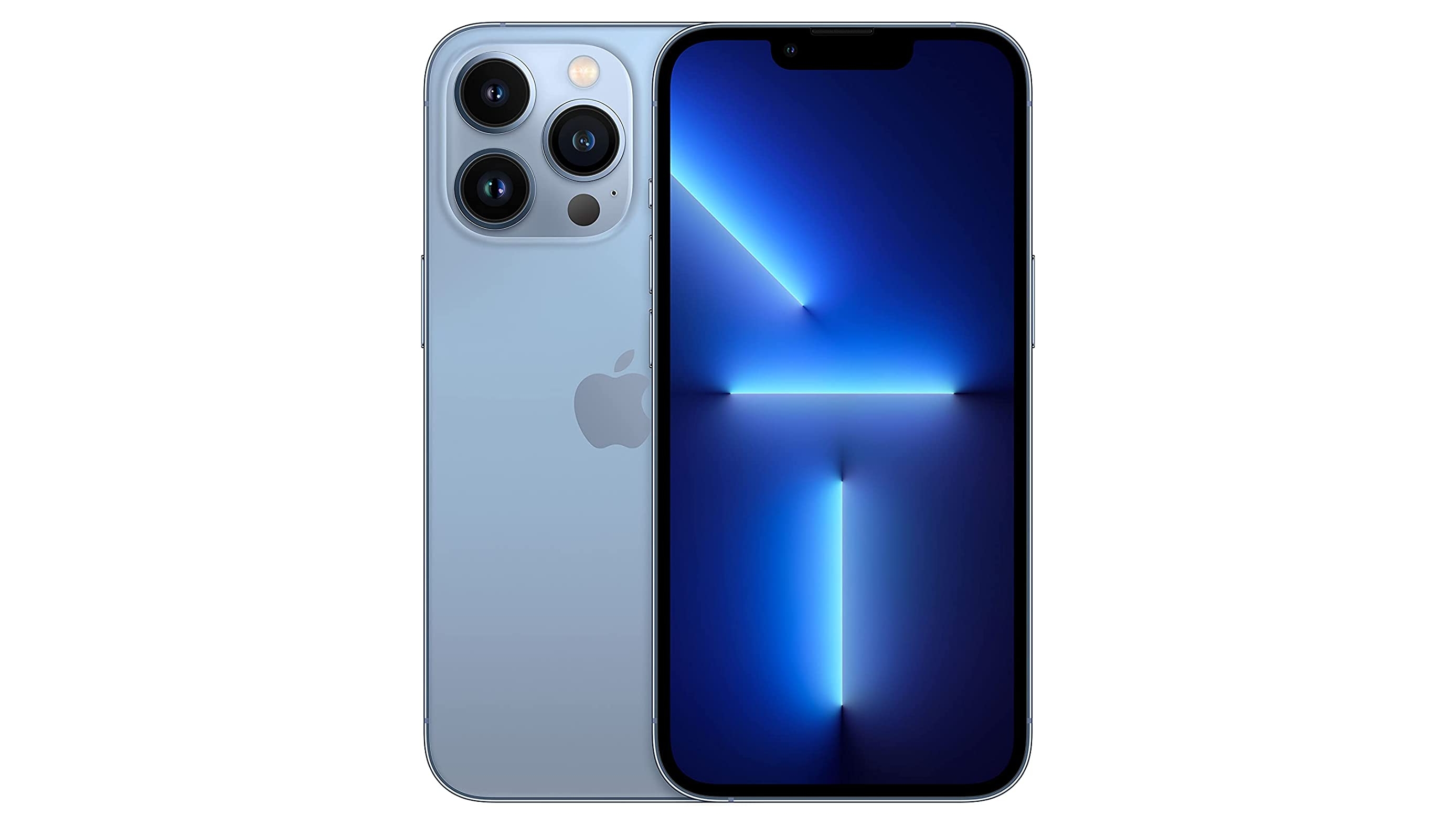
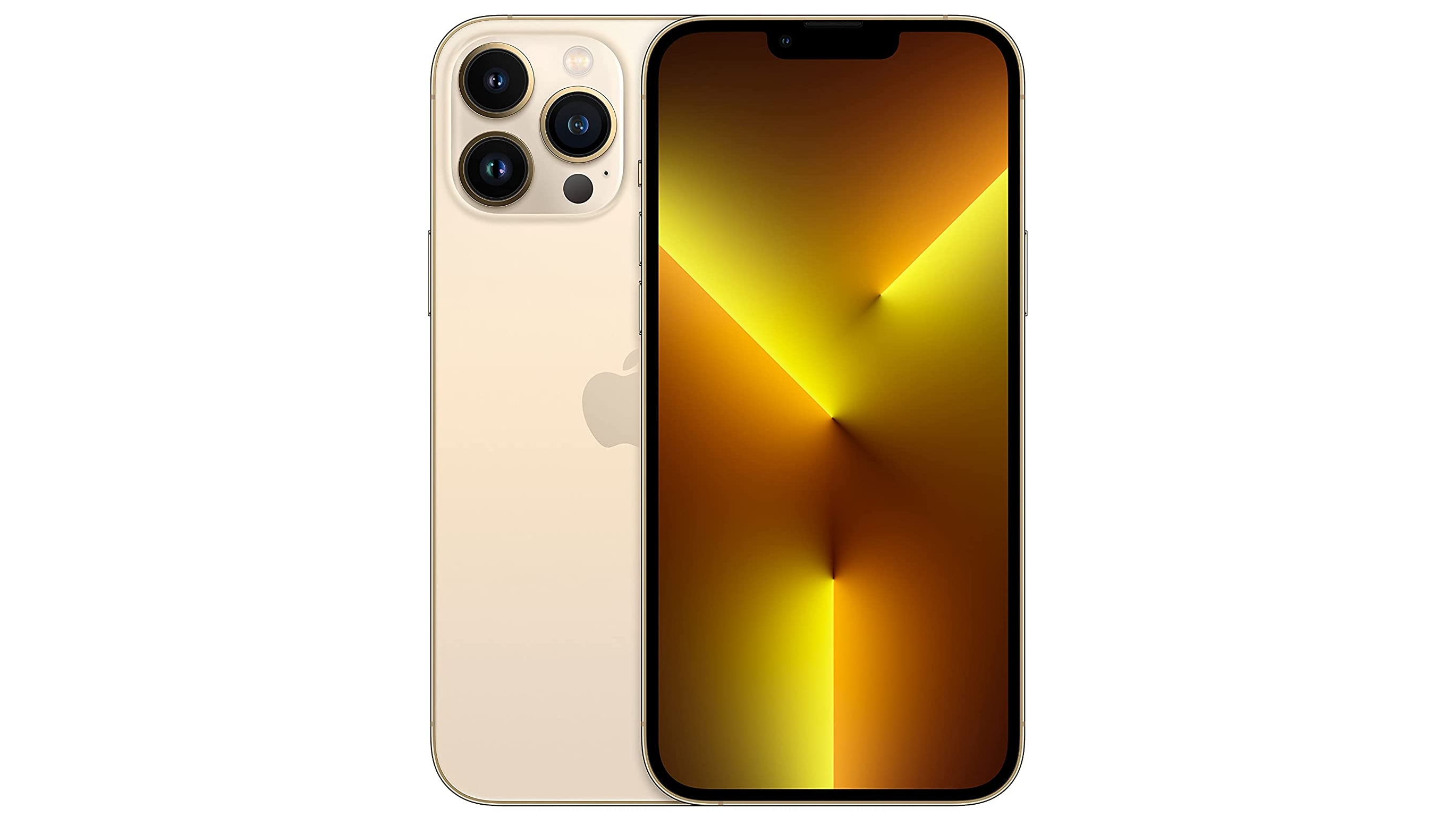
The iPhone 13 Pro and iPhone 13 Pro Max are the best iPhones available at the time of writing, offering more power than ever before, improved cameras, 120Hz refresh rates and surprisingly good battery life.
Why they're ranked 2nd: While the iPhone 13 Pro and Pro Max are the best iPhones, they’re slightly topped by the Samsung Galaxy S21 Ultra, which has a better design and a more versatile camera, but these phones come very close, and are the obvious choice for iPhone fans. With a higher refresh rate than the iPhone 12 range, a new macro mode and a smaller notch, they aren’t the biggest upgrades but they’re undeniably great.
Screen: Whether you choose the 6.1-inch iPhone 13 Pro or 6.7-inch iPhone 13 Pro Max you’re getting a sharp OLED screen with a 120Hz variable refresh rate. The continued presence of the notch is annoying, but it’s slightly smaller this time and easy to ignore, especially once you see the overall quality of the display.
Battery life: Apple has outdone itself with the battery life on the iPhone 13 Pro Max, which is genuinely great, rather than just being great for an iPhone. The iPhone 13 Pro’s isn’t quite as good, but it’s still decent and an upgrade on the iPhone 12 Pro’s life.
Camera: The iPhone 13 Pro range includes the same lens types as last year, but with larger pixels and new modes, including an impressive macro mode, and a slightly less significant Cinematic mode. Between all this and their improved low light performance, these cameras are ace.
Read more: iPhone 13 Pro review | iPhone 13 Pro Max review
Price comparison: The best iPhone 13 Pro deals
The best iPhone 13 Pro Max deals
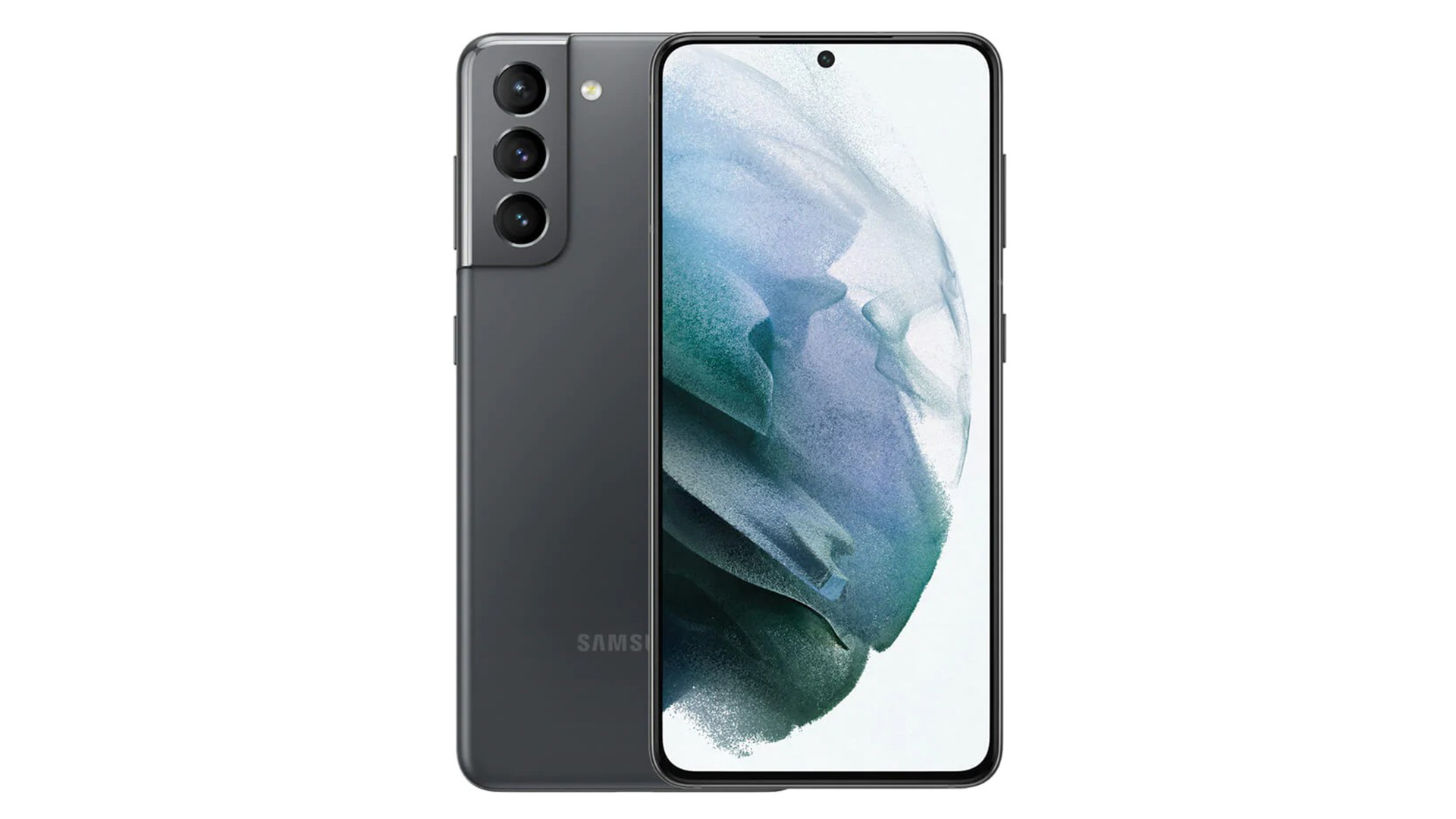
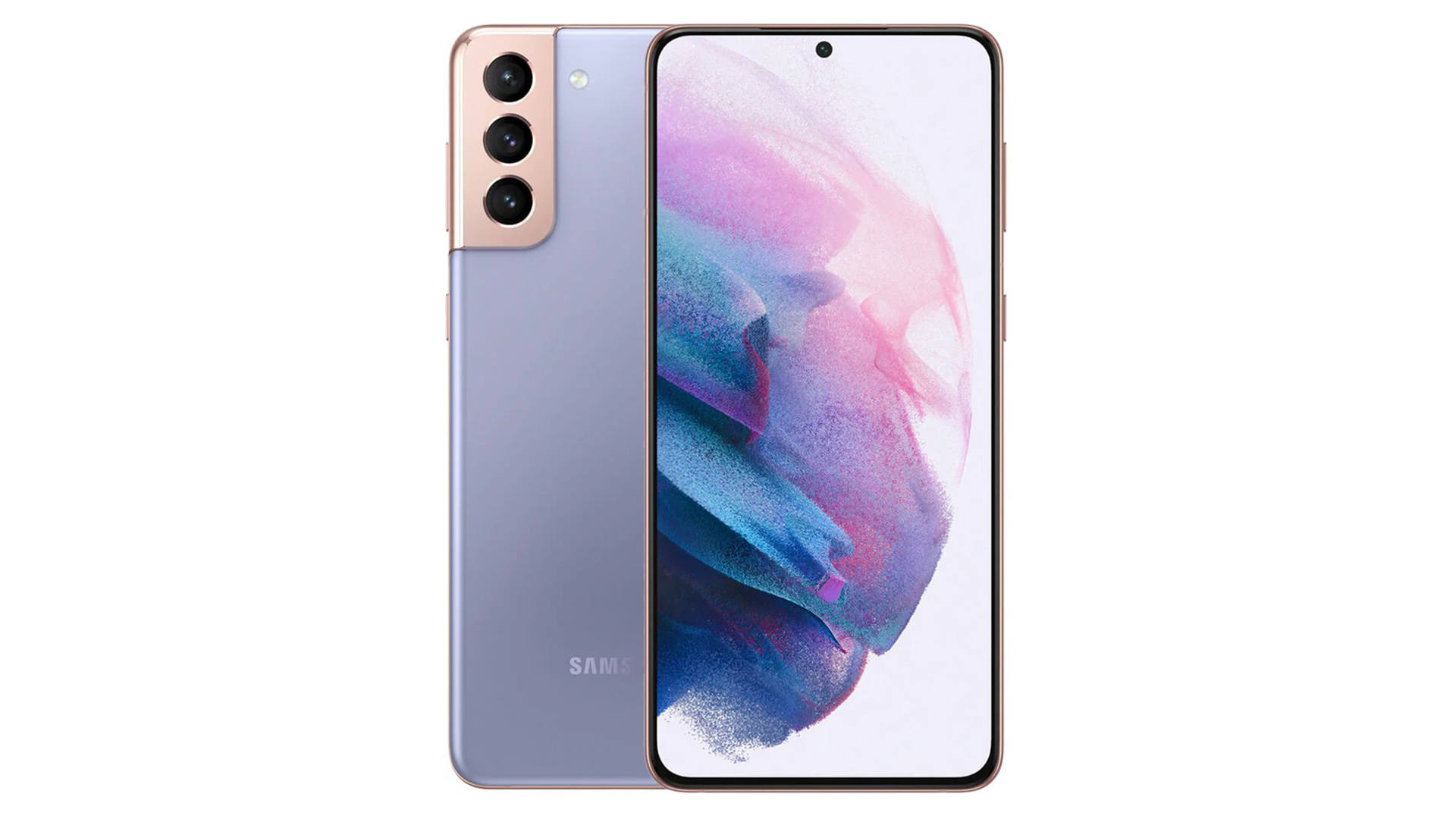
The Samsung Galaxy S21 and Galaxy S21 Plus aren't the height of spec and prowess as their predecessors used to be – the Samsung Galaxy S20 used to sit at the top of this list – and instead Samsung's Ultra handsets are now taking the limelight. But its strength is in its value: the S21 is a powerful phone that's more affordable than some of its competitors.
Why they're ranked 3rd: The Samsung Galaxy S21 will be the perfect smartphone for many with its great mix of solid spec, a great design and the fact it's cheaper than the Galaxy S21 Ultra as well as its predecessors. If you own the Samsung Galaxy S20 we wouldn't recommend buying this, but for others this will be the perfect smartphone. If you're looking for a larger screen and a better battery, opt for the very similar but slightly more expensive Plus model.
Screen: Much has been said about Samsung's switch to Full HD for the Galaxy S21's display, but in our testing we didn't notice the knock down in resolution much unless we were testing the phone side by side with a QHD display. With a 120Hz refresh rate and great brightness, the Galaxy S21's screen will satisfy many. Looking for that larger screen? You'll get it with the S21 Plus.
Battery life: The battery life on the Samsung Galaxy S21 will last you a full day from a single charge, and its 4,000mAh cell means you'll get a lot of usage out of the handset without having to recharge the phone. The battery on the S21 Plus is even better with a 4,800mAh cell inside.
Camera: The Galaxy S21's camera is much the same as the Galaxy S20, but a few software tweaks have been included from Samsung that make it just that touch better. Overall, this isn't as phenomenal as the Galaxy S21 Ultra but for most just wanting to shoot the odd snap, this will suit you perfectly.
Read more: Galaxy S21 review | Galaxy S21 Plus review
Price comparison: The best Samsung Galaxy S21 deals
The best Samsung Galaxy S21 Plus deals
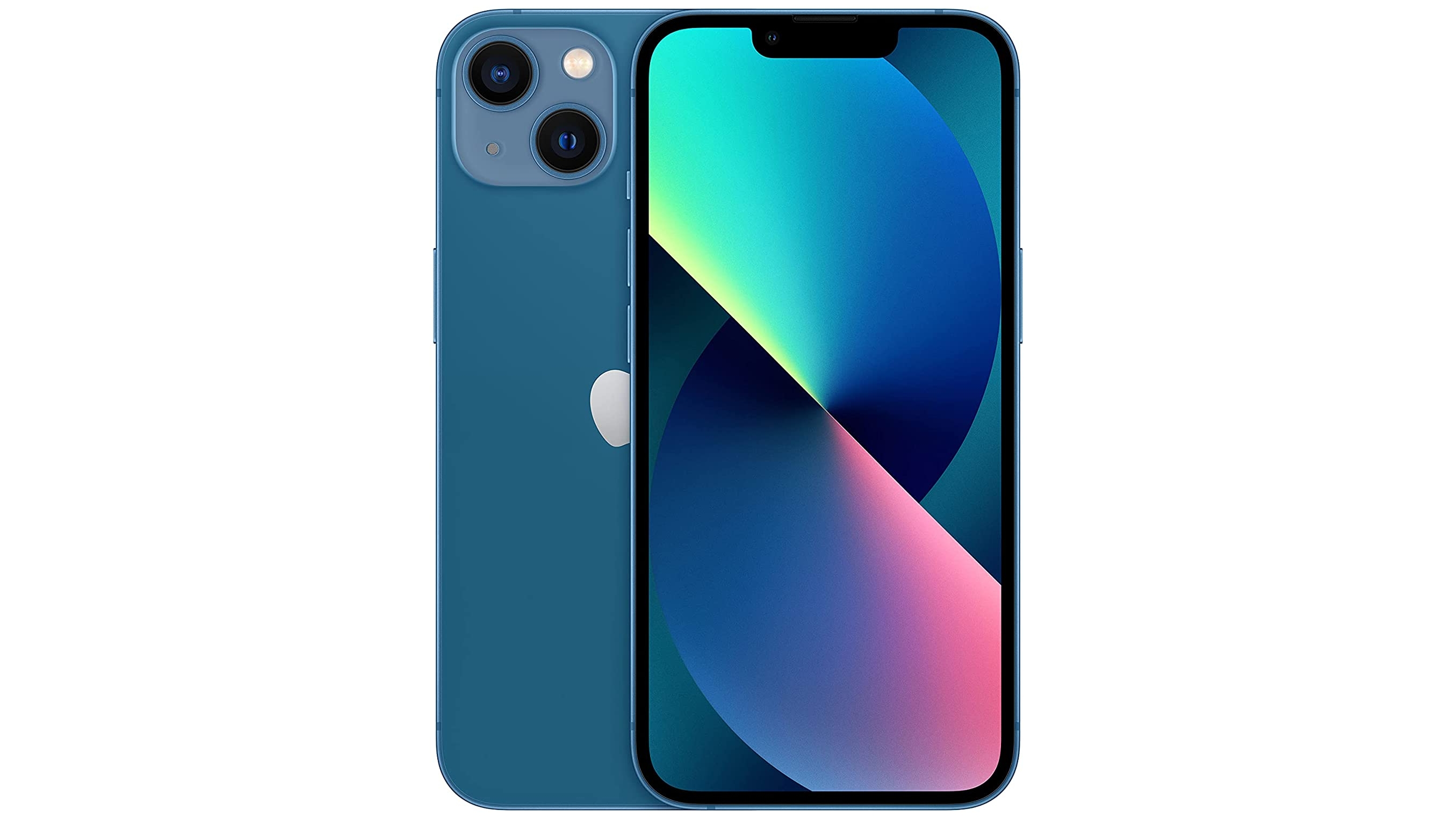
The iPhone 13 isn’t as big an upgrade as the iPhone 13 Pro, as it lacks a 120Hz refresh rate, but with oodles of power and good battery life it’s a strong choice if you don’t have a fortune to spend.
Why it’s ranked 4th: The iPhone 13 Pro / Pro Max and the Samsung Galaxy S21 range have the edge over the iPhone 13 when it comes to specs and features, but this standard iPhone model comes close to matching them, especially when it comes to battery life. And actually it probably has slightly more power than its Android rivals.
Screen: With its 6.1-inch 1170 x 2532 OLED display, the iPhone 13 has a bright and clear screen. It doesn’t have a 120Hz refresh rate, but it does at least have a slightly smaller notch than the iPhone 12.
Battery life: In our tests the iPhone 13 reliably lasted through a day of use, but not much more. That puts it in fairly average territory, yet it’s still an improvement on many previous iPhones here.
Camera: The iPhone 13 lacks a telephoto camera, but its main and ultra-wide perform well, with the former having larger pixels than the iPhone 12’s. With improved image stabilization too, plus some new shooting modes and features, there’s a lot to play with here, and a lot to like.
Read more: iPhone 13 review
Price comparison: The best iPhone 13 deals
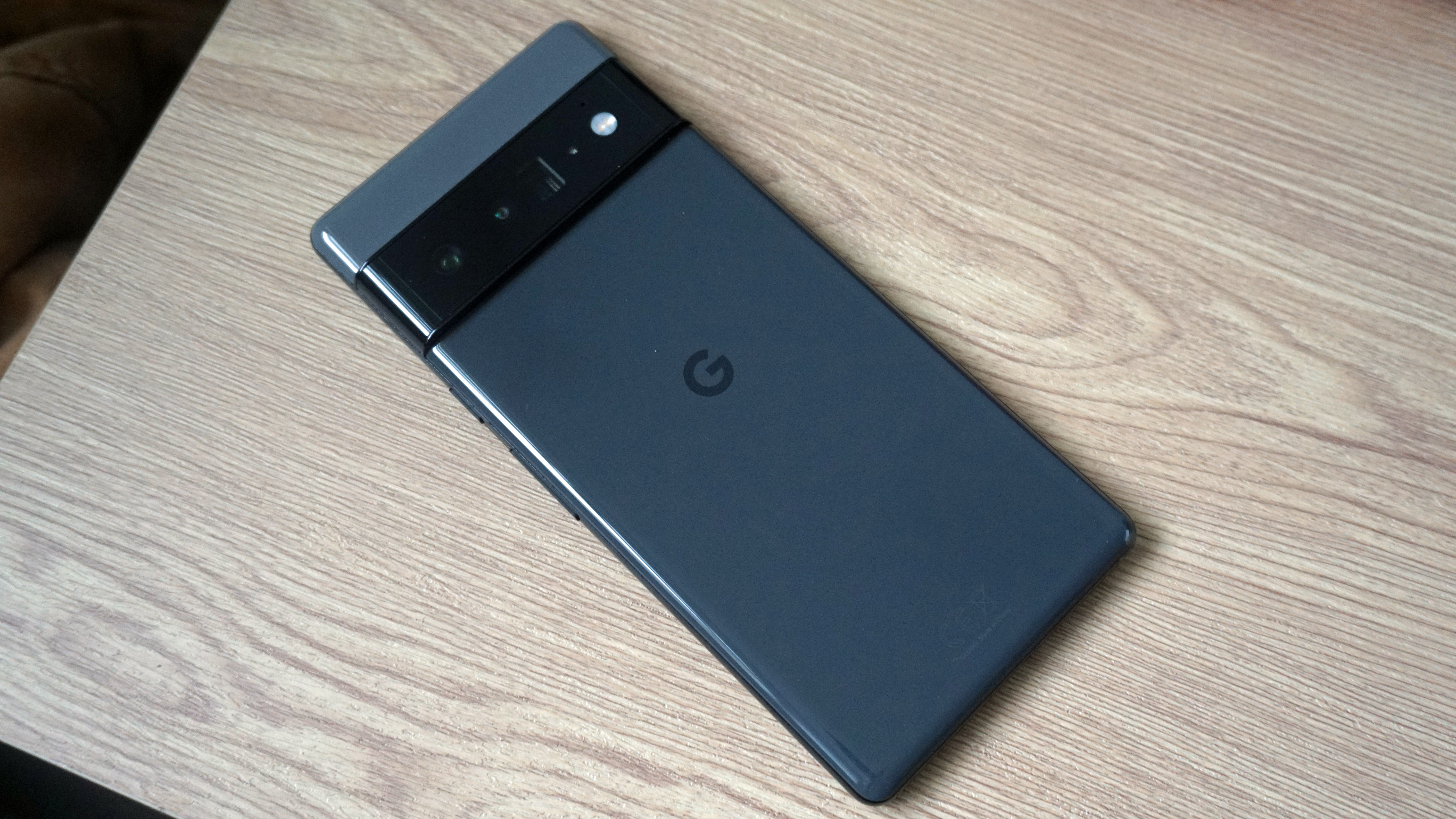
The Google Pixel 6 and Google Pixel 6 Pro came out in October 2021 to much fanfare over its new Google-designed Tensor chipset, which the company alleged would enable incredible AI software performance. While we were too quick to expect Apple A-series Bionic levels of performance from Tensor – both Pixel 6 and 6 Pro benchmarks are well below iPhone 13 and Samsung S21 levels – the cameras take the most color- and light-balanced photos we've ever seen from a smartphone.
Why it's 5th: The Pixel 6 phones are a real step up from the Pixel 5, but there are still some things that keep it from the top, like middling battery life and a divisive physical redesign. Both phones have their audience, though: the Pixel 6 at its lowest price (which varies between carriers) is cheaper than the iPhone 13 mini and Samsung S21, while the Pixel 6 Pro has premium perks like a periscope telephoto lens, a QHD screen, and an ultrawide selfie camera, all cheaper than the iPhone 13 Pro and Samsung Galaxy S21 Plus. But both phones' 50MP main camera and Google's photo software (with even more neat tricks) can't be beat.
Screen: The Pixel 6 has a 6.4-inch OLED screen with Full HD Plus (2400 x 1080) resolution, with a 90Hz refresh rate for smoother app browsing and gaming. The Pixel 6 Pro bumps that up to 6.7 inches with QHD (3120 x 1440) and 120Hz refresh rate for a sharper picture, but you'd only notice if comparing side by side. Colors are rich on the OLED display, and thanks to the dual front-facing speakers, it makes for a handy streaming device.
Battery life: The Pixel 4's battery woes are gone, but don't expect more than a day's battery life out of either phone. The Pixel 6 packs a 4,614mAh battery, while the Pixel 6 Pro has a 5,000mAh battery, but don't expect too much difference thanks to the larger display. Yes, there are battery-saving settings to eke out more life, and the 30W charger is an improvement over its predecessors, but it's lower than the 65W chargers that work with the OnePlus 9, for instance. Wireless charging maxes out at a respectable 21W, but only with Google's first-party charger.
Camera: The Pixel 6's cameras are its best selling point. The main camera has finally been improved with a 50MP shooter which, combined with Google's photo software, results in incredibly true-to-life photos. The 12MP ultra-wide feels better aligned with the photo capabilities of the main camera (they take similar photos), and if you opt for the Pixel 6 Pro, you'll get a periscope telephoto capable of 4x optical zoom for some truly great distance photos. The Pro also swaps the 8MP selfie camera (with 84-degree field of view) for an 11MP front-facing camera (94-degree field of view) for an ultra-wide effect. The Tensor chipset and AI software have new tricks, like erasing unwanted objects and capturing motion blur around a still subject, along with the best Night Mode we've seen.
Read our Google Pixel 6 review / Google Pixel 6 Pro review
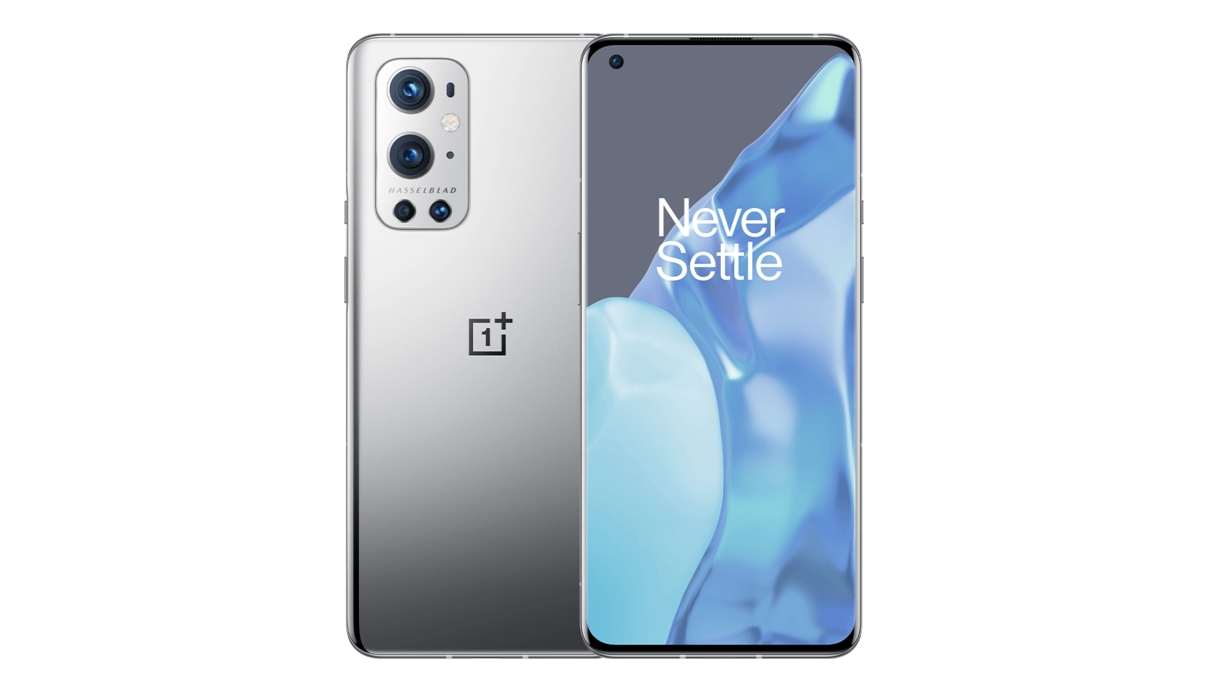
The OnePlus 9 Pro is a top-tier flagship and one that improves on the main weakness of previous OnePlus phones – their cameras. This is a phone that can compete with the other top handsets, and some may even prefer its camera to the other phones on this list.
Why it's ranked 6th: OnePlus may have focused its attention on the cameras for the OnePlus 9 Pro, but this is an overall incredible smartphone offering top-end power, a great display and most features you'd expect from any other phone you'll find on this list. Battery life isn't the absolute best, and it's remarkably expensive considering OnePlus' history in the smartphone market but it has earned its place this high on our best smartphone list because it's the overall package.
Screen: This 6.7-inch screen has the ability to impress you more than an iPhone for one simple reason: the 'Fluid Display' that sets the refresh rate to 120Hz. Not only does it make game look better, but simply scrolling the web looks smoother. You'll also find nice upscaling and HDR10+ here.
Battery life: If you need your phone battery to last all day long, the OnePlus 9 Pro achieves that, but it doesn't offer the absolute best battery life we've seen on a smartphone. It features a 4,500mAh battery, and this is set to last you a full day from a single charge but it may not offer that if you're using the phone an extraordinary amount. It also have great fast charging and wireless charging features.
Camera: Thanks to a new Hasselblad partnership and a ‘freeform’ ultra-wide lens, designed to reduce the distortion at the edge of images, the OnePlus 9 Pro is the best OnePlus camera phone. It isn't the absolute best camera phone, but it's a remarkable step up from the company with a great 48MP main camera alongside an 8MP telephoto and 50MP ultrawide.
Read more: OnePlus 9 Pro review
Price comparison: The best OnePlus 9 Pro deals
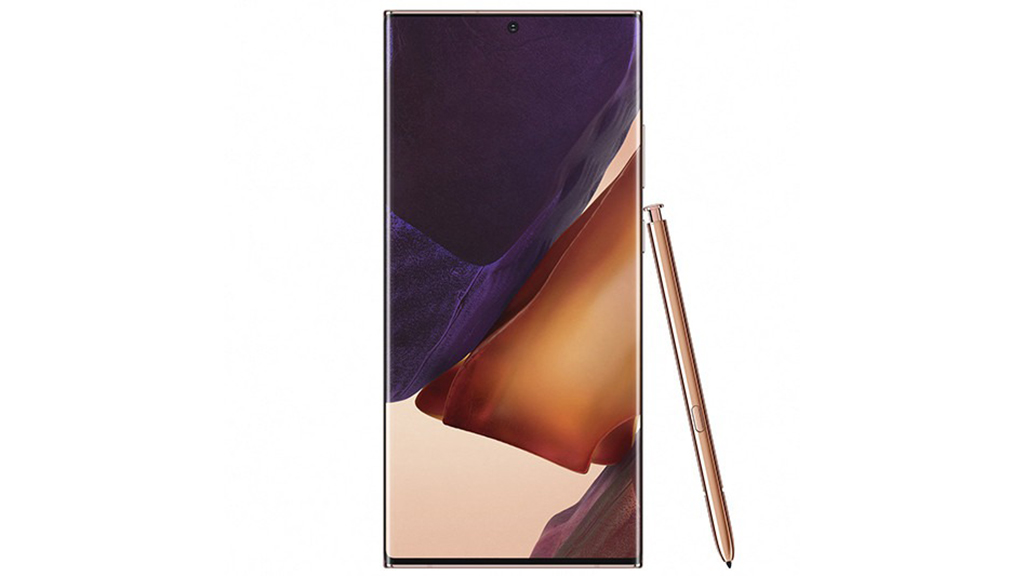
The Galaxy Note 20 Ultra is Samsung's most expensive non-foldable phone, and generation's big perk of the Note is that it comes with an amazing camera. Get ready for extreme close-ups with the 5x optical zoom and 50x digital zoom. The S Pen returns with new tricks like recording voice notes and syncing them with handwritten notes.
Why it's ranked 7th: This is one of Samsung's most powerful phones, but it's more expensive than most of the S21 series. You get it all with the Note 20 Ultra: a stylus, a camera with a 5x optical zoom and 50x digital zoom, a faster chipset (at least in the US version) and a 6.9-inch 120Hz screen. Not everyone needs an 'everything phone' like this, but if you want it all and don't want to wait for the Galaxy Z Fold 2, this is one of Samsung's best.
Screen: The 6.9-inch Note 20 Ultra display is massive, but only is a fraction of an inch larger than 2019's 6.8-inch Note 10 Plus screen. A big difference is in the fluidity of the screen via a 120Hz refresh rate. No, you can't enable both the WQHD+ resolution and 120Hz at the same time, but the pixels look fine at 1080p on a screen of this size vs having to go back to 60Hz. Another literally small perk: the front-facing camera punch hole is smaller than ever.
Battery life: The Note 20 Ultra has a solid 4,500mAh battery, and we found that it goes more than a day with normal use without a problem. Even power users won't have a problem, based on our tests. Samsung includes a 25W fast wired charger in the box and offers compatibility with 15W fast wireless charging, but it has backed off of supporting 45W wired charging for some reason.
Camera: The Note 20 Ultra has one of the best cameras on an Android phone, and that's in part because of its 5x optical zoom and 50x digital zoom. It makes 2x optical zooms from the iPhone seem like minor cropping at the edges of 1x photos. With 5x optical and, in good light, 10x digital, Samsung punches in with a dramatic zoom and usable photos on Instagram (50x zoom is mostly a party trick). We also found this phone to have the best ultrawide camera, and the regular 12MP camera is sharp. You don't need the 108MP camera and should watch out for skin softening in low-light.
Read more: Samsung Galaxy Note 20 Ultra review
Price comparison: The best Galaxy Note 20 Ultra deals
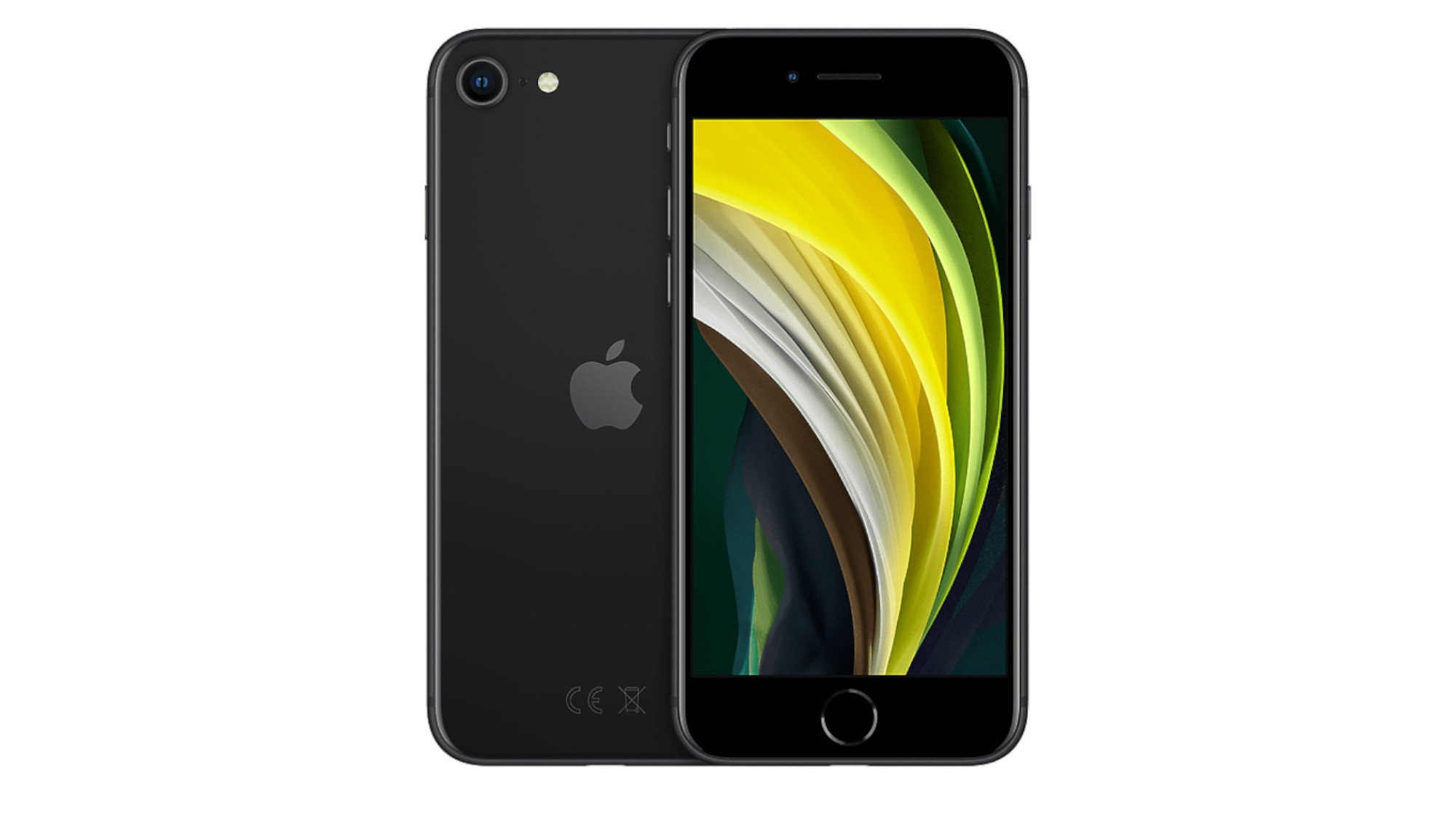
The iPhone SE 2020 is the sequel to the one-hand-friendly iPhone from 2016, and it takes the power and specs we loved from the iPhone 11 series and crams them into the design of the iPhone 7 and iPhone 8.
Why it's ranked 8th: This isn't Apple's most powerful iPhone, but it's the best value for people who want to stick with iOS 15 without paying through the nose. Its screen technology won't wow you like an iPhone 13 Pro, and there's just one camera on the back, but the relatively low price means this is hard to beat if you're on a budget and don't want to switch to Android.
Screen: This new iPhone SE has a 4.7-inch screen borrowed from the iPhone 7 and iPhone 8, so it's bigger than the original iPhone SE, but remains one-hand-friendly. That's become important for people who have been demanding a smaller phone. This is the one to get, even if the resolution and bezel won't wow anyone.
Battery life: As long as you aren't a power user (who would likely opt for the iPhone 11 series anyway), then you'll be OK with what Apple offers in terms of battery life. It's not going to last you any longer than a day, though, with generally the same amount of power as we saw on the iPhone 8, which had a 1,821mAh battery capacity.
Camera: For the money, the iPhone SE 2020 takes perfectly fine photos in good light. You won't notice much of a difference outside of it occasionally failing to nail perfect exposure levels and depth of field outdoors during the daytime. Dim the lights, however, and you'll notice one glaring omission: the night mode that's on the more powerful iPhones. That requires an upgrade to at least the iPhone 11.
Read more: iPhone SE 2020 review
Price comparison: The best iPhone SE 2020 deals
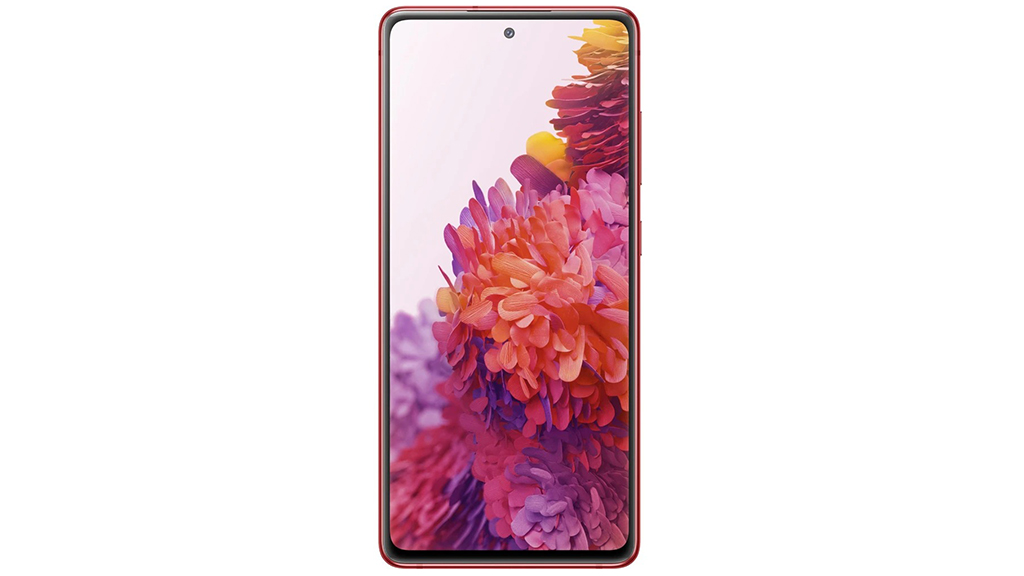
The Samsung Galaxy S20 Fan Edition is 2020's version of the Samsung S10 Lite and the S10e before it – the best of the flagship specs with a few trimmed features to save costs.
Why it's ranked 9th: The S20 Fan Edition is a good combination of specs and cameras, making it a good value for and Android phone with a signature Samsung polish that puts it ahead of most phones at the same price tier.
Screen: The 6.5-inch Infinity-O AMOLED screen is plenty sharp at Full HD Plus, even if its not quite the WQHD resolution of its pricier siblings, nor does it have the 120Hz refresh rate. It retains an in-screen fingerprint sensor, leaving the phone's back unblemished.
Battery life: The Galaxy S20 Ultra has a huge 4,500mAh battery, helpful for Wireless PowerSharing and mundane binging or gaming you're doing. We found it lasted a day or more, though we still haven't hit the two-day battery life threshold yet.
Camera: The cameras are another area of trimmed capability: while the 12MP main shooter is fine, but not quite the high-megapixel of the S20 and especially the 108MP S20 Ultra. The other cameras are perfectly suitable, including the 12MP ultra-wide lens, an 8MP telephoto with 3x optical zoom, and a hefty 32MP selfie shooter in a punch-hole.
Read our Samsung Galaxy S20 FE review
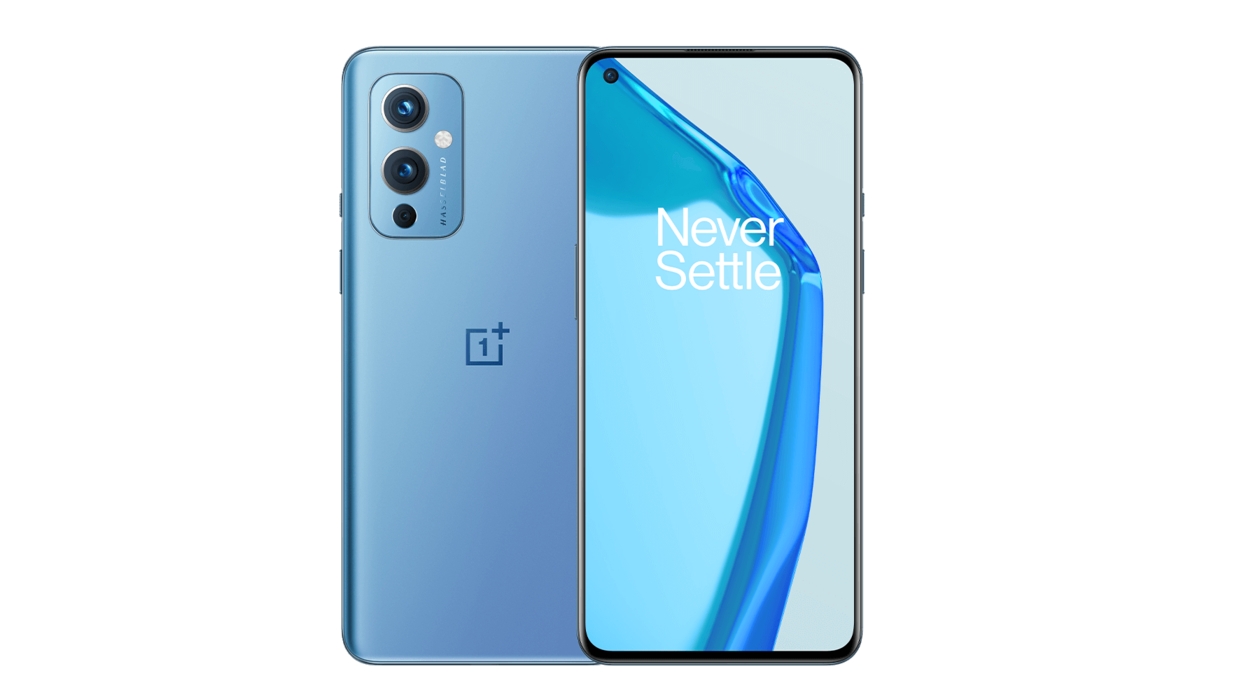
The OnePlus 9 is a lesser phone than the OnePlus 9 Pro in a number of ways, but it’s also quite a bit cheaper, and arguably keeps the soul of its pricier sibling intact.
For one thing it retains the Hasselblad branding (and the camera expertise that goes with that), as well as having the same camera hardware as the OnePlus 9 Pro – minus that phone’s telephoto snapper.
Why it's ranked 10th: The OnePlus 9 is a phone that almost has it all. From its great screen to its high-end chipset, capable cameras, long-lasting battery, and good software. Much like the phones before it, this isn't the absolute best choice but it's very good for the price.
Screen: At 1080 x 2400 pixels, the OnePlus 9 doesn’t have the sharpest screen, but it’s sharp enough, and its 120Hz refresh rate coupled with AMOLED tech makes it one of the best displays you’ll get for this sort of money. It’s also quite big at 6.55 inches.
Battery life: There’s a big 4,500mAh battery in the OnePlus 9, which comfortably lasts a day and charges very quickly, as it supports 65W charging. Plus, there's wireless charging in here too if you wanted to opt for a charging pad instead.
Camera: This is the big upgrade for the OnePlus 9, and while it doesn't reach the heights of the OnePlus 9 Pro is makes some fantastic true-to-life imagery that you won't be embarrassed to share with your friends. It features a 48MP wide camera, 50MP ultra-wide and 2MP depth sensor.
Read more: OnePlus 9 review
Price comparison: The best OnePlus 9 deals
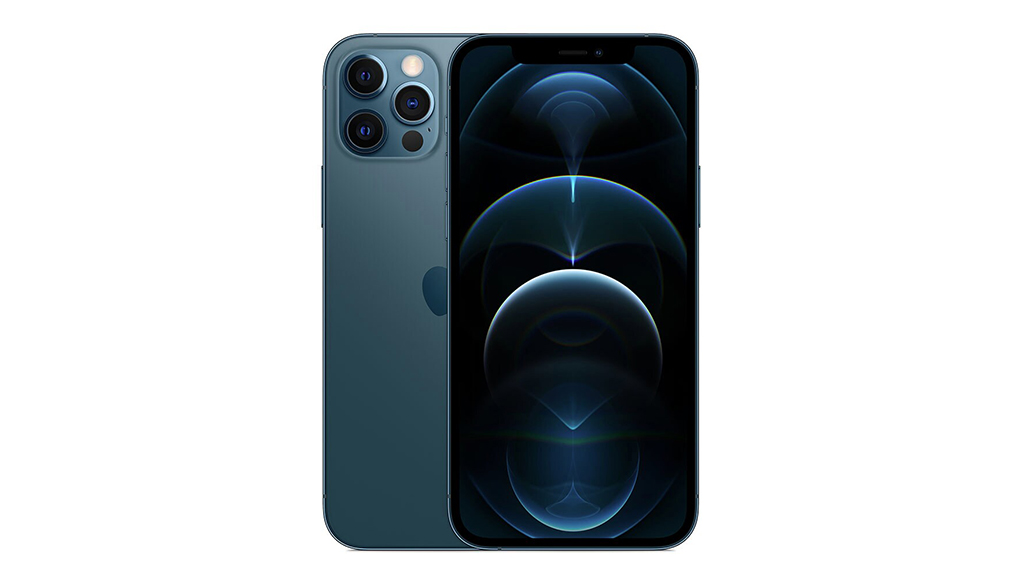
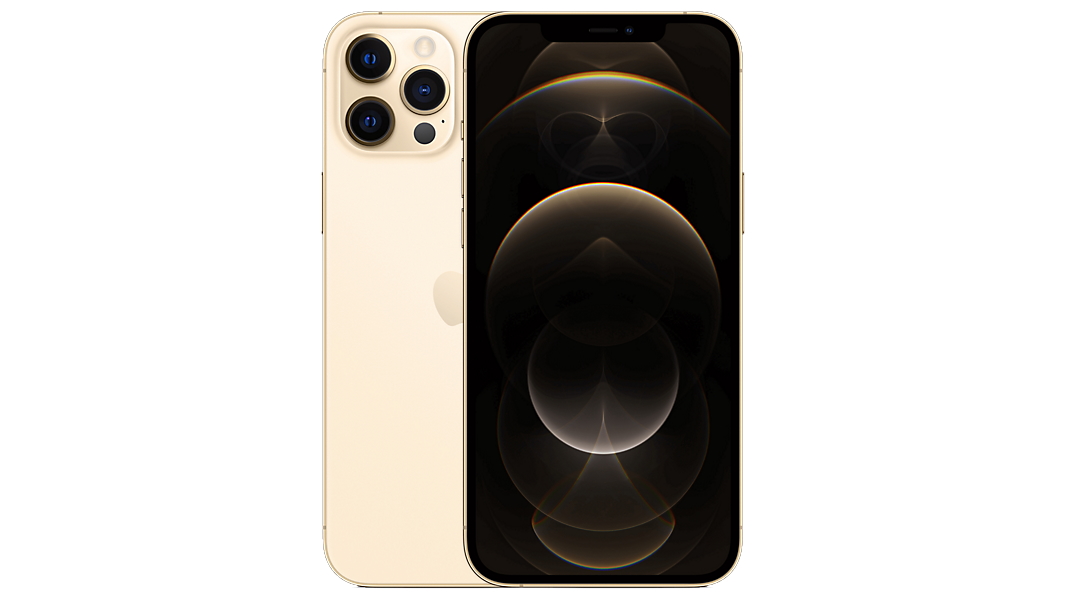
The iPhone 12 Pro takes everything great about the iPhone 12 and elevates it. Then there's the iPhone 12 Pro Max that offers better battery life and a slightly more powerful camera as well as a huge screen. The extra for the iPhone 12 Pro may not be worth the notable price hike, but this phone pairing was undeniably the best Apple had released until the iPhone 13 range arrived.
Why they're ranked 11th: The iPhone 12 Pro and iPhone 12 Pro Max are very powerful, and they're also the very pricey. While the same amount of money could buy you a Samsung phone with a bigger screen and more storage at the base level, most iOS users don't want to deal with Android. Instead, they can look forward to a few key upgrades over the iPhone 11 Pro, like 5G and MagSafe for clipping on accessories (as well as wireless chargers) easily and securely.
Screen: Apple's 6.1-inch OLED screen on the iPhone 12 Pro really grabbed our attention – it's fantastic for video streaming and gaming, even if it's set to 60Hz while other phones are pushing 90Hz and even 120Hz refresh rates. Yes, the notch cut out at the top is still here, but we find it to be easy to ignore after a while, even as other phones do just fine with punch-holes in displays.
Battery life: This is some of the best battery life we've ever experienced on an iPhone, with further optimizations within iOS and a larger cell inside the phone itself. It's still not game-changing, but it's better than other Apple handsets and the iPhone 12 Pro Max is particularly notable.
Camera: The triple camera setup on the iPhone 12 Pro is fantastic. While the three rear cameras aren't too different than the ones in the iPhone 11 Pro, save for the added LiDAR sensor that supposedly enables portrait mode-style shots even in Night Mode. The iPhone 12 Pro Max is the one to go for though if you want the very best camera on an Apple device.
Read more: iPhone 12 Pro review | iPhone 12 Pro Max review
Price comparison: The best iPhone 12 Pro deals
The best iPhone 12 Pro Max deals
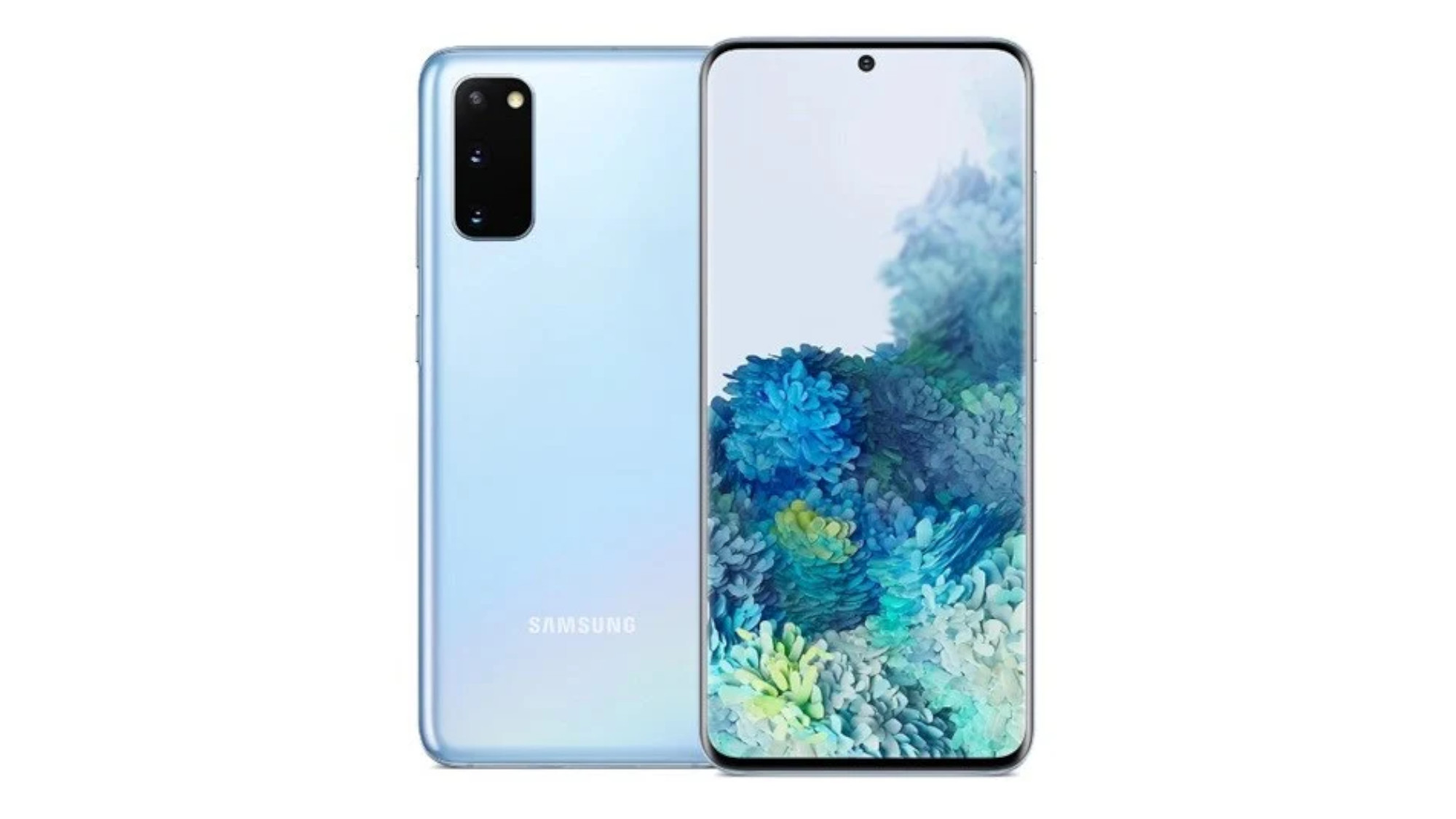
The Samsung Galaxy S20 Plus was previously the best phone you can buy today, while the smaller (and slightly less capable) Galaxy S20 is so similar that we've lumped the two together.
Why they're ranked 12th: Previously the best smartphones money can buy, the Samsung Galaxy S21 series has knocked the Galaxy S20 range from its top spot but these are still fantastic choices for your next handset. Plus, if you're looking to buy one soon you may find it's cheaper than it was before the Galaxy S21 appeared.
Screen: The Infinity-O AMOLED displays on both phones - 6.2 inches for the S20, 6.7 inches for the S20 Plus - are gorgeous. The notches are both centralized like the Note 10, but they're much smaller this time around, and the S20 Plus only has a single lens. The result: more screen. Also the S20 has a 120Hz maximum refresh rate for silky-smooth media and gaming, though you'll mostly notice it while browsing – and you'll have to drop your display resolution down to FHD+ to enjoy it.
Battery Life: The S20 packs a 4,000mAh battery, while the S20 Plus has 4,500mAh of capacity. That is, to put it lightly, a lot, and frequently got us through over a day without recharging. Keep in mind that battery life estimate will dip down if you set the refresh rate at 120Hz, use a ton of 5G connectivity or lend juice with Wireless PowerShare, so adapt accordingly if you're looking to keep your phone going longer.
Camera: The S20 and S20 Plus have truly spectacular cameras. No, not their 12MP main shooters, which are fine – it's the 64MP telephoto that really shines with a 3x optical zoom (up from the usual 2x zoom). The camera can also crop zoom to a muddy 30x digital zoom – which means the interim intervals are still a good deal more impressive than the competition. The 12MP ultra-wide performs adequately, while the 10MP front-facing camera works great with fun filters. Another first-time bonus: 8K 24fps video from the rear camera.
Read more: Galaxy S20 review | Galaxy S20 Plus review
Price comparison: The best Samsung Galaxy S20 deals
The best Samsung Galaxy S20 Plus deals
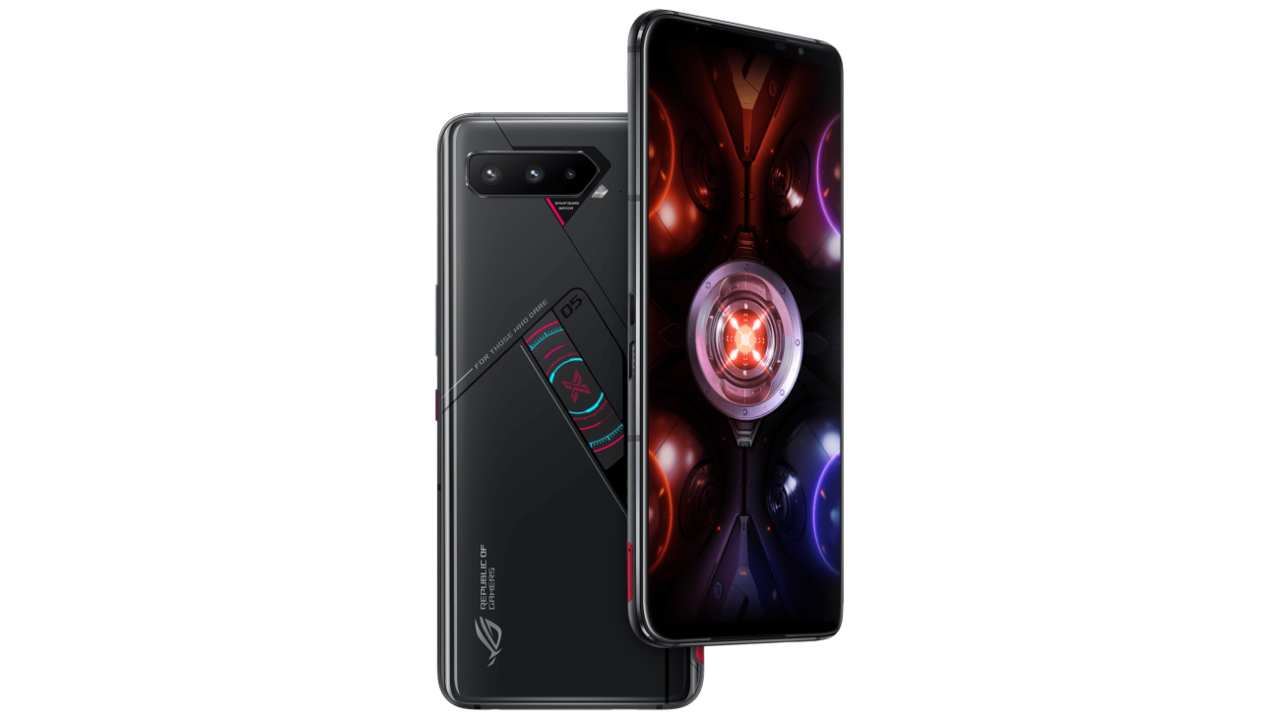
The Asus ROG Phone 5 is one of the very best gaming phones, but as an all-round handset it doesn’t rank quite as high. Still, with its impressive 144Hz refresh rate and 6,000mAh battery it could appeal to plenty of non-gamers too.
Why it’s ranked 13th: The Asus ROG Phone 5 is laser-focused on being a gaming device, which means it’s a little lacking in some other areas, including the camera. However, that focus also means it’s got a great screen, brilliant battery life and plenty of power.
Screen: You get a 6.78-inch 1080 x 2448 AMOLED screen with an almost unmatched 144Hz refresh rate, for silky smooth interactions. It also has a 300Hz touch sampling rate – which will benefit gamers in particular. The only disappointment is that the screen isn’t slightly sharper.
Battery life: With a 6,000mAh battery the Asus ROG Phone 5 has better endurance than most flagships, and it sports fast 65W charging too. If battery life is a concern then this is a top choice.
Camera: There’s no telephoto camera here, and in our tests we found that results from the main and ultra-wide lenses was decent, but not a match for the top rivals. You also get a macro lens, but at 5MP this isn’t anything special.
Read more: Asus ROG Phone 5 review
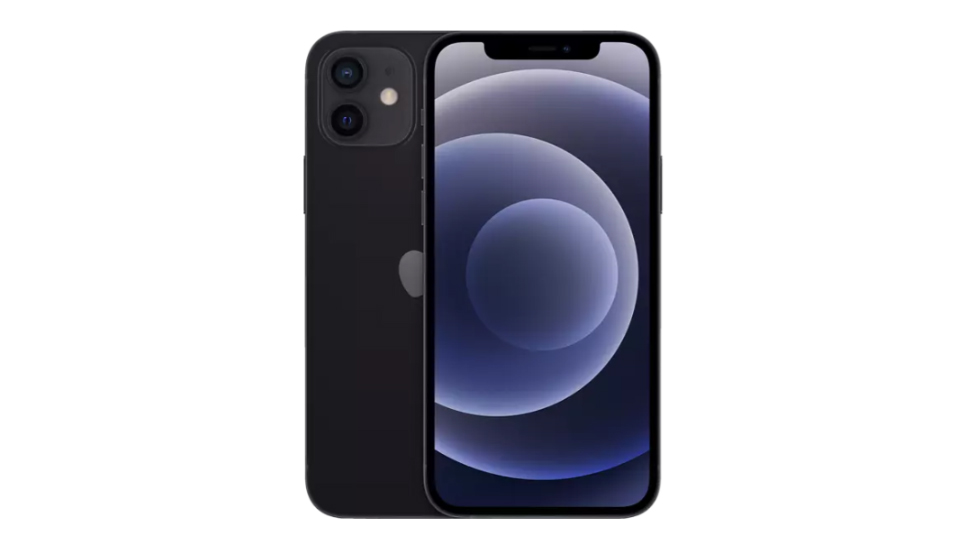
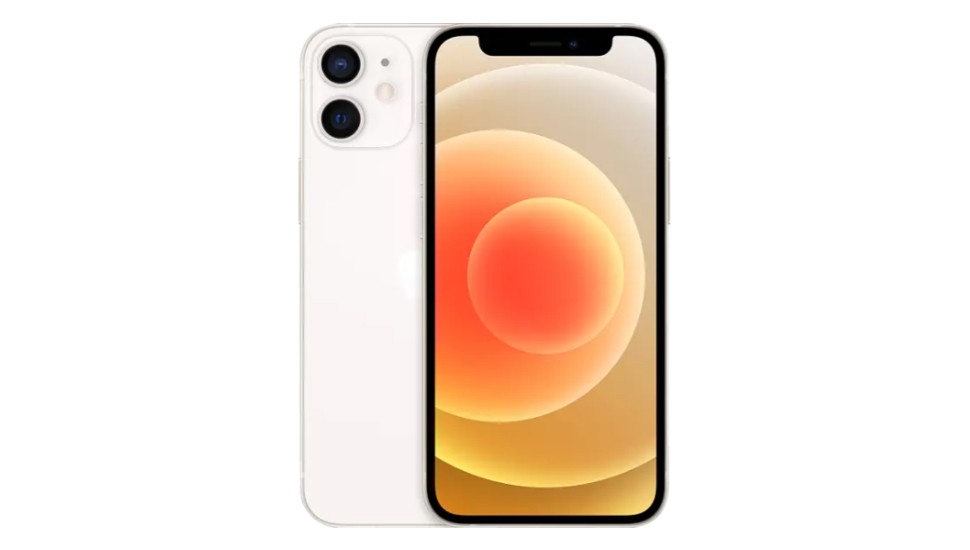
The iPhone 12 or iPhone 12 mini aren't technically superior to the iPhone 12 Pro series, but both are priced so well (for iPhones) and each has most of the key features you'll want from an Apple device – and since the iPhone 13 didn't upgrade much, you can save some money opting for the 2020 iPhone flagship. The iPhone 12 takes the place of the iPhone 11 with the same 6.1-inch screen, but a few new features like MagSafe. Then there's the new iPhone 12 mini, which is similar but comes in a smaller package.
Why they're ranked 14th: It's not as good of a value as Samsung's top-ranked handset, but the iPhone 12 is a great iPhone for some people simply because it costs significantly less than much of the competition. And, unlike the iPhone SE 2020, which we also praise for being good value, you're getting most of the features found on the Pro-level handsets like the camera's stunning Night Mode.
Screen: The 6.1-inch screen is the same size as the display on the iPhone 12 Pro, fitting in between the iPhone 12 mini and 12 Pro Max sizes, making it an appealing choice if you want a large screen, but not the biggest. If you want the smaller version, it has a 5.4-inch screen. For the first year, the more 'affordable' flagship also gets an OLED screen, which is a big perk. It's a brilliant-looking phone, if you don't mind the notch.
Battery life: These iPhones can deliver all-day battery life, and it's slightly better than the iPhone 11 battery, which we thought was stellar in 2019. What are you going to be missing? The pricier iPhone 12 Pro series does last a bit longer, but given no phones come with faster chargers this year, you'll have to shell out for Apple's fast charger unit just like the Pro owners.
Camera: This is close to the best iPhone camera, with both a 12MP main camera and a 12MP ultra-wide camera to cram more into the frame. It's missing the triple-lens camera on the Pro models, which adds in a telephoto lens, but you're getting the two essential cameras from that pairing, and it includes a long exposure night mode that will automatically brighten up dark photos.
Read more: iPhone 12 mini review | iPhone 12 review
Price comparison: The best iPhone 12 mini deals
The best iPhone 12 deals
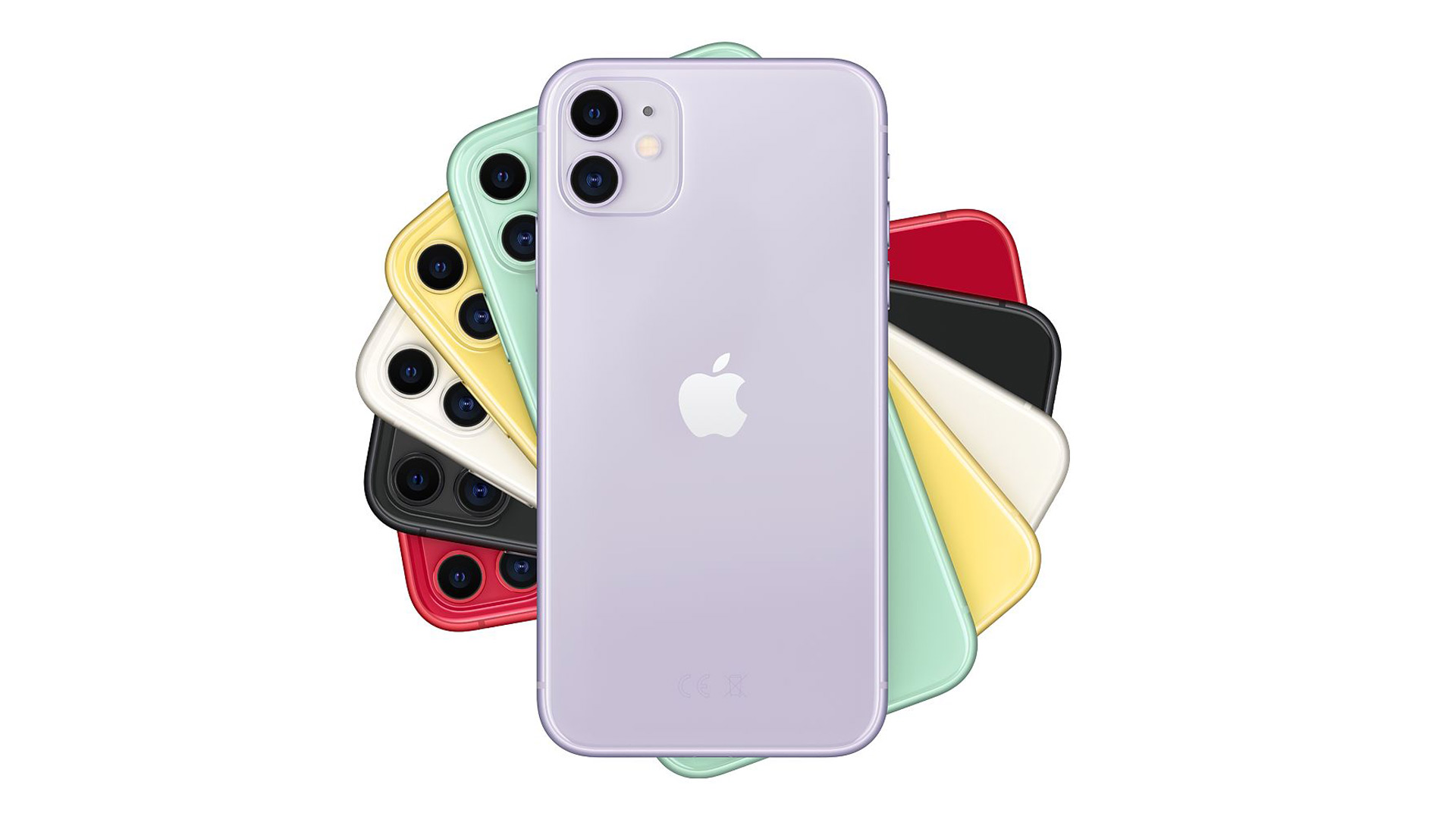
The iPhone 11 is getting on a bit now but thanks to Apple's fantastic software support and speedy hardware it's still a great buy.
Why it's ranked 15th: The specs here aren't as impressive as they are on the iPhone 11 Pro or iPhone 11 Pro Max, let alone the iPhone 13 range, but the trade-off in a lower price for this device still makes it a top-buy for many Apple fans. You'll miss out on a faster processor and features like MagSafe by not going with the iPhone 13 or iPhone 13 mini, but that's about it.
Screen: The iPhone 11's 6.1-inch display isn't the best screen you'll find on an iPhone – it's still an LCD, for instance, whereas the iPhone 13 line all have OLED displays – but it's still vibrant and large enough to watch video on. Like all post-iPhone X Apple handsets, you'll have to live with a wide notch.
Battery life: The easiest way to describe battery life on the iPhone 11 is good, but not great. You'll get around a day of usage from the iPhone 11, but it's not as good as the physically larger phones like the 11 Pro Max.
Camera: Expect a similar experience from the camera on the iPhone 11 as on the iPhone XR. If you want the best camera on an iPhone, you'll want the iPhone 13 Pro Max, but it's still an impressive shooter on the rear of the 11 – and crucially, it has an HDR-like Night Mode.
Read our in-depth iPhone 11 review
Price comparison: The best iPhone 11 deals
You're at the end of our best smartphone guide, but that doesn't mean we can't help you still - if you're stuck on which model is for you, we've got a tool that can compare all the phones together and you can decide which one suits you best based on the cost.
If you want to get all the info, then check out our full mobile phone deals page.
from TechRadar - All the latest technology news https://ift.tt/3oQenrr
No comments:
Post a Comment